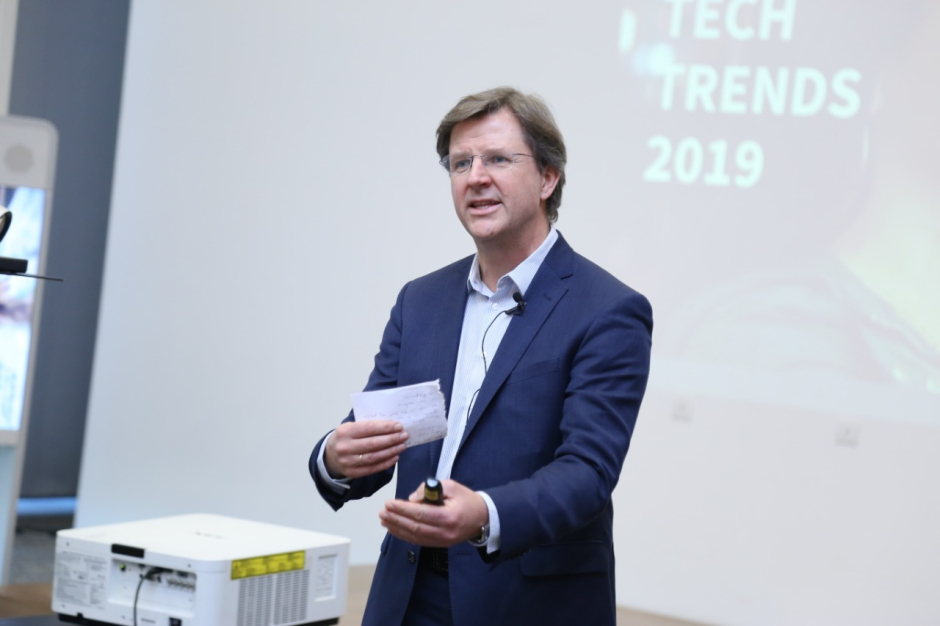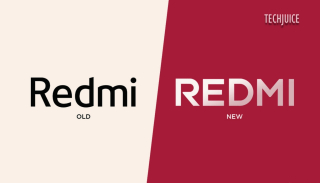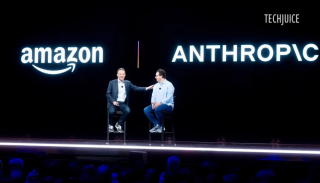Telenor Group hosted a meetup of journalists yesterday at Telenor Campus 345, Gulberg with Vice President of Research and Future Studies Bjørn Hansen to discuss the future of emerging technologies in 2019. Telenor R&D is mostly focused at a global level where scientists and industry professionals are working towards identifying breakthrough solutions using cutting edge technology. Their workforce consists of 75 to 80% Ph.D. scholars whereas the rest are from the industry.
I sat down with Mr. Hansen after his presentation to know more about his thoughts regarding the technology trends and how they specifically relate to developing countries.
Telenor Group predicts that 2019 will be the year where the lines between fake news and actual news will be blurred even more due to the increased use of neural networks, how can the general public avoid being misled this year then?
So, first of all, we are pointing out that the news can be manipulated but to what extent it will be widespread or how much of the general public will be affected, we aren’t aware. We hint at a possibility that it will happen. Regarding how to deal with it, we believe awareness is the key and we need to explain to people not to rely on a single source of news rather they should always triangulate and confirm a piece of news they read from multiple reputed publishers to confirm its authenticity.
Regarding your trend of AI software, We recently saw that a group of researchers discovered that AI hid information from them on purpose. In light with your predictions that AI will get regulated, do you think this is the right way to go?
I didn’t say regulated, rather there is a growing concern about the progress being made in AI and we need to be careful while creating awareness about how AI is being used in an ethical way. What’s happening in the European Union right now is that they are developing guidelines on how to do it. So we believe that’s the main trend. For instance, if we look at self-driving cars, the AI software works on a set of guidelines like road regulations and of course there will be rules around that.
There was a mention about 5G Islands and how we will truly see digitization, how do you think the same concept of 5G islands can be implemented in developing countries?
It’s expensive to set up this in developing countries but once you get the experience with how the technology works then it can be copied to other locations. So where these islands are set up is primarily determined by where it is easiest to do it and market wise where you have interesting partners to do it with and whether you have all assets available. So that could be in developed or developing countries as it depends on the market conditions. For Telenor’s part, we have a pilot project currently running in Norway.
In your presentation, I particularly noted that there was a lesser emphasis on Blockchain. Don’t you think Blockchain technology will see a rise this year in research and so forth?
There is definitely a lot of hype and interest around Blockchain. At the Research Department, we have a team looking into the opportunities and shortcomings of Blockchain. My personal view is that there are some limits and some sort of challenges with Blockchain. The real advantage with Blockchain is that you don’t need a trusted authority managing the database but many of the deployments we see do have one authority running the system and if that is the case, Blockchain is a very inefficient way to manage the database. So in my view, still I am not convinced but we surely need to follow Blockchain and there is a lot of expectation here.
In your presentation, you talked about an enriched Internet of Things (IoT) system this year. What is Telenor Group specifically doing towards the growth of smart cities throughout the world?
So, in Norway and throughout Europe, we have Start IOT where we have set up collaborations and have invited startups and innovators where we have provided them with certain type of IoT equipment working on Telenor networks for a limited period of time and then we help them with the necessary platforms so that they can start developing their services. In Norway, we have around 100 different startups currently working with us. So that’s one example and the important thing here that we as a telco, bring one part of the puzzle to the table. There are other parts as well before society can get the benefits.
On the sidelines of the interview, Cathrine Stang Lund, Director of Telenor Group Communications (Asia) also informed me about Connexion which specifically deals with IoT solutions towards the business and enterprise market. One of the goals of Connexion is to research and provide solutions related to smart cities as well.
Why does an average family need a chatbot?
So, my wife tells me that she can turn off the light with a switch, it’s perfectly fine. It’s convenient, so I consider it to be a matter of convenience to be able to control devices from the chair without using a remote or actually getting up. So in that respect, it is convenient. For instance, if you have a voice interface inside your car, you can check the stock market and do all sorts of stuff such as check the weather without taking your hands off the steering wheel or looking away from the road.
What possibilities in Green tech do you think are still unexploited, like you mentioned m-agriculture or the irrigation part, and developed/developing countries really need to focus on them?
So the general answer is that we have these enabling technologies now that give fantastic opportunities and I don’t have sort of the imagination to see the view completely but there are some smart guys out there who are working and figuring out ways to use this technology. The examples I have given are sort of obvious but there are other things going on out there.












